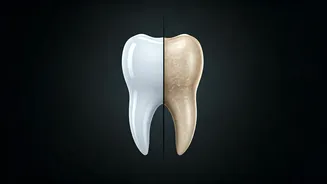Understanding Osteoarthritis
Osteoarthritis is a degenerative joint disease characterized by the breakdown of cartilage, leading to pain, swelling, and stiffness in the affected joints.
It's a common condition, especially among older adults, impacting the quality of life. Factors such as age, genetics, obesity, and joint injuries can contribute to its development. The disease often progresses gradually, and the symptoms can worsen over time. Management typically involves a combination of lifestyle adjustments, medications, and sometimes, surgical interventions. Understanding the underlying causes and mechanisms of osteoarthritis is crucial for making informed decisions about treatment and care. Early interventions, including nutritional support, can potentially slow the progression of the disease and help manage symptoms effectively, enhancing the well-being of those affected.
Glucosamine's Role
Glucosamine is a naturally occurring compound found in cartilage, playing a key role in maintaining joint health. It acts as a building block for the cartilage that cushions the joints. Supplementing with glucosamine may help stimulate cartilage repair and potentially slow down its breakdown, thus mitigating some osteoarthritis symptoms. Numerous studies have examined glucosamine's efficacy, with some showing it can reduce pain and improve joint function. It is often available in supplement form, either as glucosamine sulfate or glucosamine hydrochloride. The effectiveness of glucosamine can vary among individuals, and it may be more beneficial for those with mild to moderate osteoarthritis. Common side effects are generally minor, but it is always important to consult a healthcare professional before starting any new supplement to ensure it is suitable for individual needs and to avoid potential interactions with other medications.
Chondroitin's Contribution
Chondroitin is another essential component of cartilage, and often works synergistically with glucosamine. It helps to retain water in the cartilage, keeping it hydrated and elastic, which contributes to its ability to absorb shocks. Chondroitin may also help to inhibit enzymes that break down cartilage. Supplements containing chondroitin are believed to slow down the progression of osteoarthritis, decrease pain, and increase joint mobility. Like glucosamine, chondroitin's benefits vary among individuals. Some studies suggest that a combination of glucosamine and chondroitin can provide better results than using either supplement alone. It is essential to choose reputable brands and products and seek guidance from a healthcare provider regarding dosage and potential interactions with other medications. While generally considered safe, monitoring for side effects is always advised.
MSM's Anti-inflammatory Action
Methylsulfonylmethane (MSM) is a sulfur-containing compound found naturally in plants and animals. It is often included in osteoarthritis treatments due to its potential anti-inflammatory properties. MSM may help reduce pain and swelling by decreasing inflammation in the joints. Some research suggests that MSM can enhance the effectiveness of glucosamine and chondroitin. Beyond its effects on joint health, MSM also plays a role in collagen production, which is vital for healthy skin and connective tissues. It is generally considered safe, but potential side effects, such as mild gastrointestinal upset, are possible. The dosage of MSM varies depending on individual needs. Consulting with a healthcare professional before use ensures proper guidance and minimizes any risks associated with supplementation, ensuring it fits safely into an overall health plan.
Omega-3 Fatty Acids
Omega-3 fatty acids, especially those found in fish oil, have potent anti-inflammatory properties that can benefit people with osteoarthritis. These fatty acids, particularly EPA and DHA, help reduce inflammation in the joints, which contributes to pain and stiffness. They may also help reduce the need for other pain medications. While fish oil is a common source, omega-3s can also be obtained from flaxseed oil and certain nuts and seeds. Regular consumption of omega-3s is associated with improved joint function and reduced symptom severity. The dosage of omega-3s varies based on individual needs and the concentration of EPA and DHA in the supplement. It's important to consider potential interactions with blood-thinning medications and consult a healthcare provider before incorporating these supplements into your routine, ensuring they're suitable for overall health.
Vitamin D's Importance
Vitamin D is critical for bone health, and it also plays a role in reducing inflammation, making it beneficial for individuals with osteoarthritis. Vitamin D deficiency is frequently linked to increased joint pain and the progression of the disease. Supplementation can help improve bone density and reduce inflammation. Vitamin D is produced in the skin through exposure to sunlight and can also be obtained from certain foods, such as fatty fish and fortified dairy products. Individuals, particularly those with limited sun exposure, may require supplementation. It is essential to have vitamin D levels checked through blood tests to determine the appropriate dosage. High doses of Vitamin D can be harmful, so it's crucial to work with a healthcare provider to establish a suitable supplementation plan, ensuring the benefits are maximized while avoiding potential side effects.
Turmeric's Anti-inflammatory Power
Turmeric, a spice commonly used in Indian cuisine, contains curcumin, a compound known for its powerful anti-inflammatory properties. Curcumin can help reduce inflammation in the joints, which may alleviate pain and stiffness associated with osteoarthritis. While turmeric can be consumed in food, curcumin supplements often provide a higher concentration. The bioavailability of curcumin is enhanced when combined with piperine, found in black pepper. Several studies support the use of curcumin in managing osteoarthritis symptoms. It is generally considered safe, but potential side effects may include digestive upset. Always consult a healthcare professional before starting any new supplement, including turmeric, especially if taking medications. This will help determine the correct dosage and avoid any interactions, ensuring it is integrated safely into your health regime.















